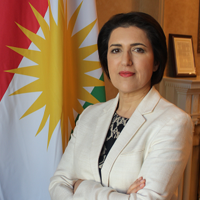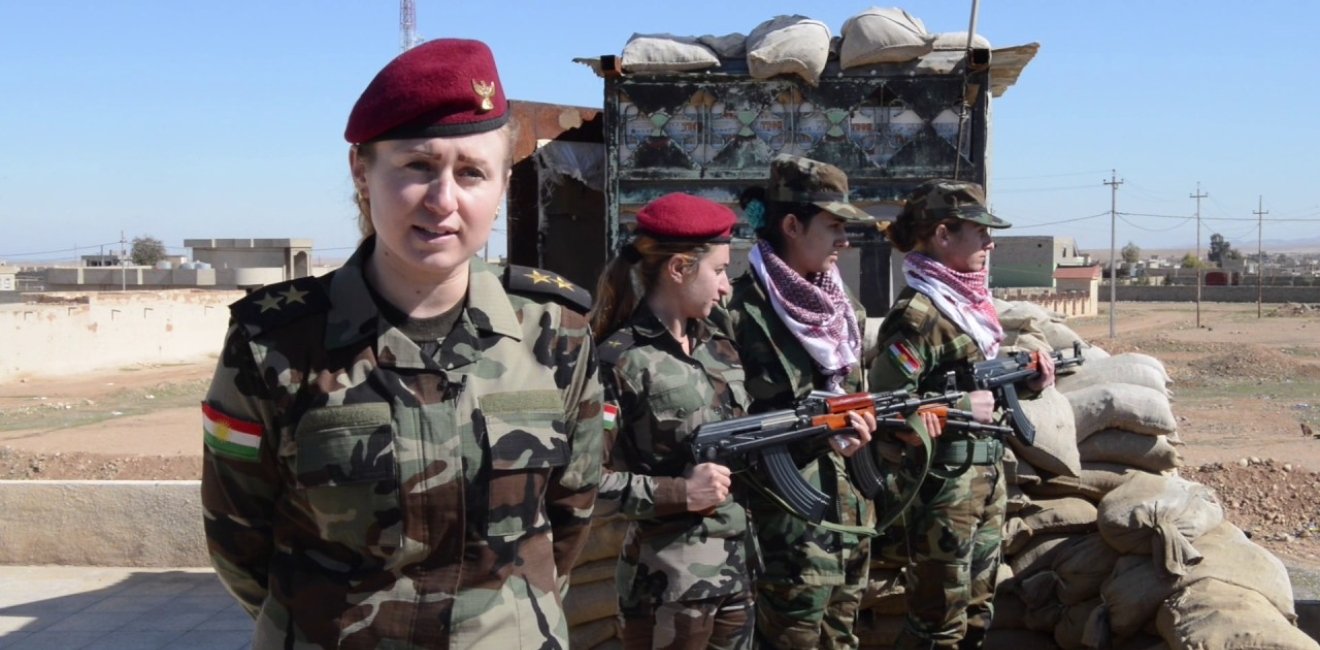
A blog of the Middle East Women's Initiative
The name Halabja evokes a dark history: the chemical bombing of this Kurdish city in Iraq in 1988, the destruction of the city’s heritage and agriculture, and genocide. But the city also boasts a strong history of female leadership, going back a century and illustrated today in the leadership of the city’s female mayor.
Adela Khanum was born in 1847 in Sanandaj, in modern-day Iranian Kurdistan. After marrying Osman Pasha Jaff, the ruler of the Sharezoor region, Adela Khanum moved to Halabja and began to assume authority of a number of administrative functions, particularly as her husband traveled frequently. After Osman Pasha’s death in 1909, Adela Khanum’s authority went largely unchallenged, except by the British who appointed her son Ahmad as governor. Still, she remained powerful and beloved by the people until her death in 1924.
Today that torch has been passed to Nuxsha Nasih, a young, iron-willed woman serving as the Mayor of Halabja. In addition to the everyday challenges of administrating a city of 120,000 inhabitants, she works to provide care for the victims of the chemical attacks and strengthen the city’s economy.
Nuxsha Nasih, who is currently visiting Washington DC, is just one example of women in leadership roles in Kurdistan today, including activists, artists, political leaders, journalists, and peshmerga. We are especially proud of the Kurdish women who fought against ISIS and that Kurdistan hit a new milestone last month when its parliament elected a woman, Vala Fareed, as speaker for the first time.
Kurdistan mourned last year when the fearless and charismatic Rudaw journalist Shifa Gardi was killed by a landmine while she was interviewing a Shi’a militia leader near Mosul.
Despite the prominent role that women have played in Kurdistan’s society, there are still challenges, including discrimination, violence at home, and honor-based attacks.
Yezidi women bore the brunt of the genocide perpetrated by ISIS against their community. ISIS sexually enslaved thousands of Yezidis. The community’s leaders broke with tradition by announcing that they would accept the women back into their society. This is rare in the Middle East where the victim of rape is often seen as the guilty party. Some of the most effective voices championing the cause of the Yezidis have been women. Vian Dakhil, then a member of the Iraqi parliament, in August 2014 called on the world to help save her people from genocide. Pari Ibrahim, a young woman who grew up in Holland, founded the NGO Free Yezidi Foundation, and Nadia Murad won the Nobel Peace Prize for campaigning for the victims of sexual violence.
To advocate for women in the Kurdistan Region, Prime Minister Nechirvan Barzani in 2010 inaugurated the High Council for Women’s Affairs. The indefatigable Pakhshan Zangana, a grandmother and former Peshmerga (soldier), heads the Council. The council, which includes ministers heading six key ministries, runs public awareness campaigns, training programs, and advocates within the government for women’s rights.
Kurdish women have achieved much but there is more to do. The achievements of these women and countless others in Kurdistan’s history and current life have helped pave the way for women to play an even more central role in the region’s future.
Author


Middle East Program
The Wilson Center’s Middle East Program serves as a crucial resource for the policymaking community and beyond, providing analyses and research that helps inform US foreign policymaking, stimulates public debate, and expands knowledge about issues in the wider Middle East and North Africa (MENA) region. Read more


Middle East Women's Initiative
The Middle East Women's Initiative (MEWI) promotes the empowerment of women in the region through an open and inclusive dialogue with women leaders from the Middle East and continuous research. Read more

Explore More in Enheduanna
Browse Enheduanna
Women are the Catalysts for Change in Lebanon

How Education Can Empower Young Women in MENA


